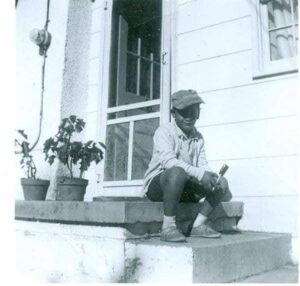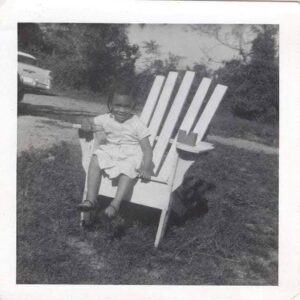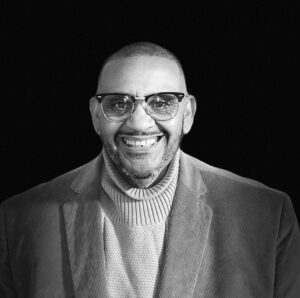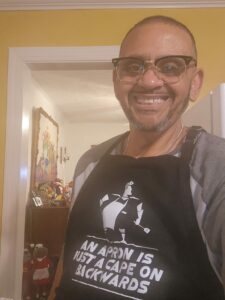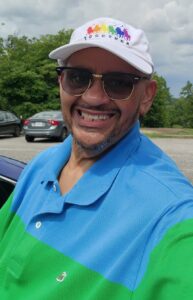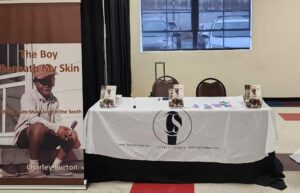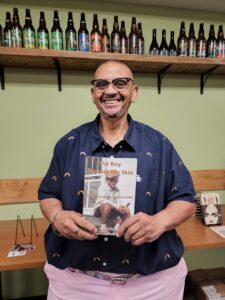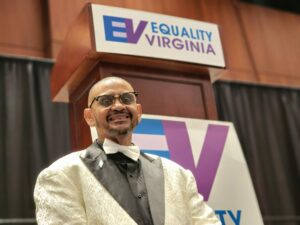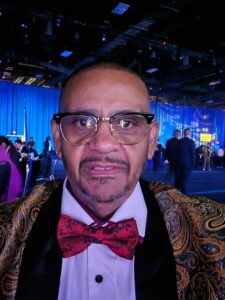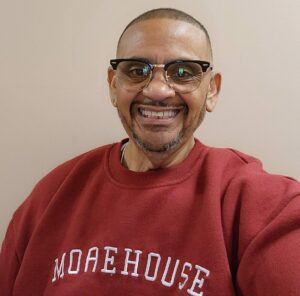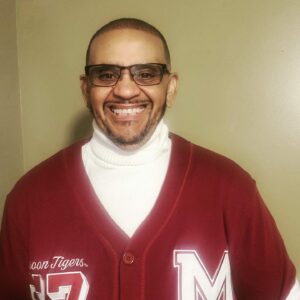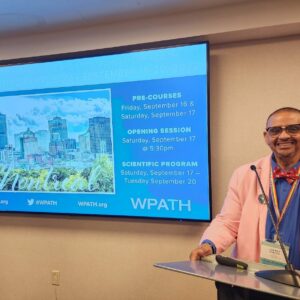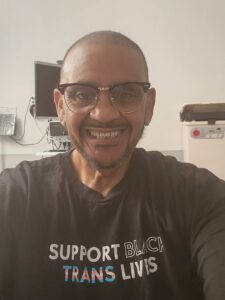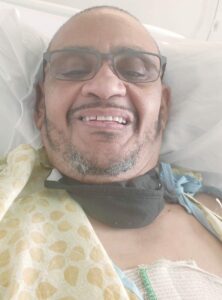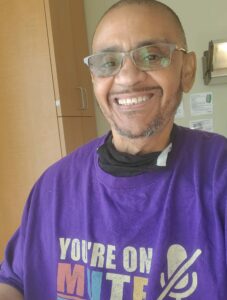Charley Burton was born on May 27, 1960 in Charlottesville, Virginia. The city was segregated in his early childhood, and his parents were vocal advocates for the Black community. Charley’s parents also worked multiple jobs, and while they were out of the house, he was molested by an uncle between the ages of 3 and 6, which would be the first of numerous times that Charley experienced sexual violence.
Assigned female at birth, Charley fought frequently with his mother over his unwillingness to wear feminine clothing, and he couldn’t fit in with the boy or girl cliques at school. By age 12, he felt so alone that he attempted suicide for the first time by eating plant food poisoning. Around that same year, he began taking Valium and drinking.
At 16, Charley found sports, excelling at volleyball and shot put. He became a regional and state champion for shot put, which earned him college scholarships. A year later at 17, he got into a car accident that led to an addiction to painkillers. After a sexual assault, he attempted suicide again and landed in the hospital again.
Charley began college shortly after, but two months in, he could no longer stay in school. For the next 25 years, he looped through a cycle of drinking, getting jobs, getting depressed, overdosing on pills, and getting his stomach pumped. Charley estimates being admitted 75 times to psychiatric institutions. He didn’t want the female body he was born with, but he also did not want to be associated with the trans community, which he thought of as trans women struggling with poverty and violence. Charley’s doctors tried to “cure” his transness through electroconvulsive therapy, which he remembers as blurs of pain and losing a sense of time.
Charley had also always known he was sexually attracted to women. He had a year-long relationship with a woman named Constance, but their relationship ended because his internalized gender battles made his moods so volatile. Charley took Constance’s walking out as a cue to seek help.
In 2006, Charley started attending AA meetings in Charlottesville. Although the meetings were very white-dominated, he worked hard to find community, and is still sober to this day. Charley also went to the UVA hospital to explore his gender. He began transitioning at age 50 and connected with Black Trans Men Inc., and eventually reconnected with Constance as friends.
Since transitioning and getting sober, Charley’s physical and mental health have improved significantly. He has been much calmer and happier on testosterone, and appreciates the healthcare providers who treat him with care and respect. He became financially stable and bought a house. He attended Morehouse College, the all-male HBCU in the year they first admitted trans men, and is finishing up with a 4.0 GPA. Classmates voted him “Morehouse Man of the Month.”
Charley has now written a book on his life and is a motivational speaker. He pushes back against the “don’t ask, don’t tell” norm for queer stories, especially stories of poverty, abuse, and struggle. He is determined to be a voice for those who are struggling to find theirs, and is a staunch advocate for trans rights in healthcare. Charley currently serves on the LGBTQ Advisory Board for UVA Health. His work has earned him the Outstanding Virginian title in 2021 by Equality Virginia and a spot on the Virginia LGBTQ+ Advisory Council as appointed by the state governor.

